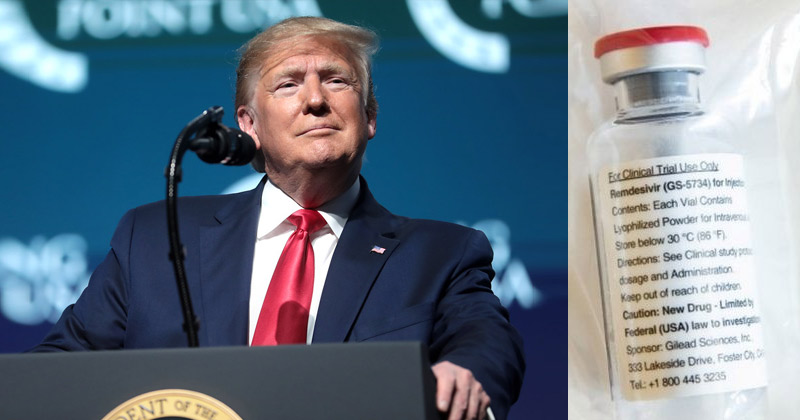Remdesivir is seen as a beacon of hope in the treatment of patients with Covid-19 – not just since the US issued a waiver for the drug. US President Donald Trump also received Remdesivir. It was the first drug approved for the treatment of Covid-19 – but a new WHO study casts doubt on its effectiveness.

For months, experts have been placing high hopes on remdesivir as a drug against the coronavirus. But now, according to the World Health Organization(WHO)’s recent reports, several potential corona drugs checked in a worldwide test series have shown little or no effect. This emerges from data from the solidarity study coordinated by the WHO, which has not yet appeared in a peer-reviewed journal.
Remdesivir, which US President Donald Trump received after he was infected with the SARS-CoV-2 virus, is also among the drugs reviewed by WHO.
The Manufacturer Emphasizes The Effectiveness Of Its Drug
Remdesivir maker Gilead reiterated the effectiveness of its drug on Friday. It was concerned that the WHO study data had not undergone the usual rigorous scrutiny.
Interim results suggested that the drugs tested had little or no effect, the WHO said on Friday. Among other things, they examined what effect they had on mortality, the time at which ventilators were used, and the length of the hospital stay.
Study With Thousands Of Patients In Over 30 Countries
As part of the solidarity study coordinated by the WHO with thousands of patients in almost 500 clinics in more than 30 countries, remdesivir, chloroquine/hydroxychloroquine, lopinavir/ritonavir, and interferon regimes were tested. The drugs were originally developed for other diseases.
The WHO also emphasized that the results have not yet been published, but have yet to be examined by experts. A manuscript was uploaded to Yale University’s medRxiv server.

What Is Remdesivir?
Remdesivir is an experimental active ingredient from Gilead Sciences that has not yet been officially approved as a medicinal product. Remdesivir was originally developed as a treatment against Ebola and Marburg virus infections. Remdesivir is administered intravenously.
During the Ebola epidemic 2014-2016, Gilead conducted tests of the compound on monkeys. The researchers found that remdesivir penetrates tissues of the brain, eyes, and testicles, which the virus uses as a retreat to replicate. In the clinical tests on monkeys infected with Ebola, the virus was suppressed from multiplying. Remdesivir reduced symptoms and the monkeys survived. In the second study in 2019, the active ingredient is protected against infection by the Nipah virus, which causes encephalitis that is often fatal.
Also Read: Why are Viruses so Successful? What Makes Them The Most Effective Parasites? Let’s Find Out
What Did Earlier Studies And Experts Say About The Benefits Of Remdesivir?
A clinical study conducted earlier showed that the active ingredient originally developed against Ebola can reduce the time it takes for Covid patients to recover by several days. At the end of April, the US National Institute for Infectious Diseases (NIAID) announced that remdesivir had significantly reduced the duration of treatment in a clinical study. It was deduced that Remdesivir has a significant positive effect in reducing the time to recovery. Nothing can be said for sure now until the final results of the study are published.


